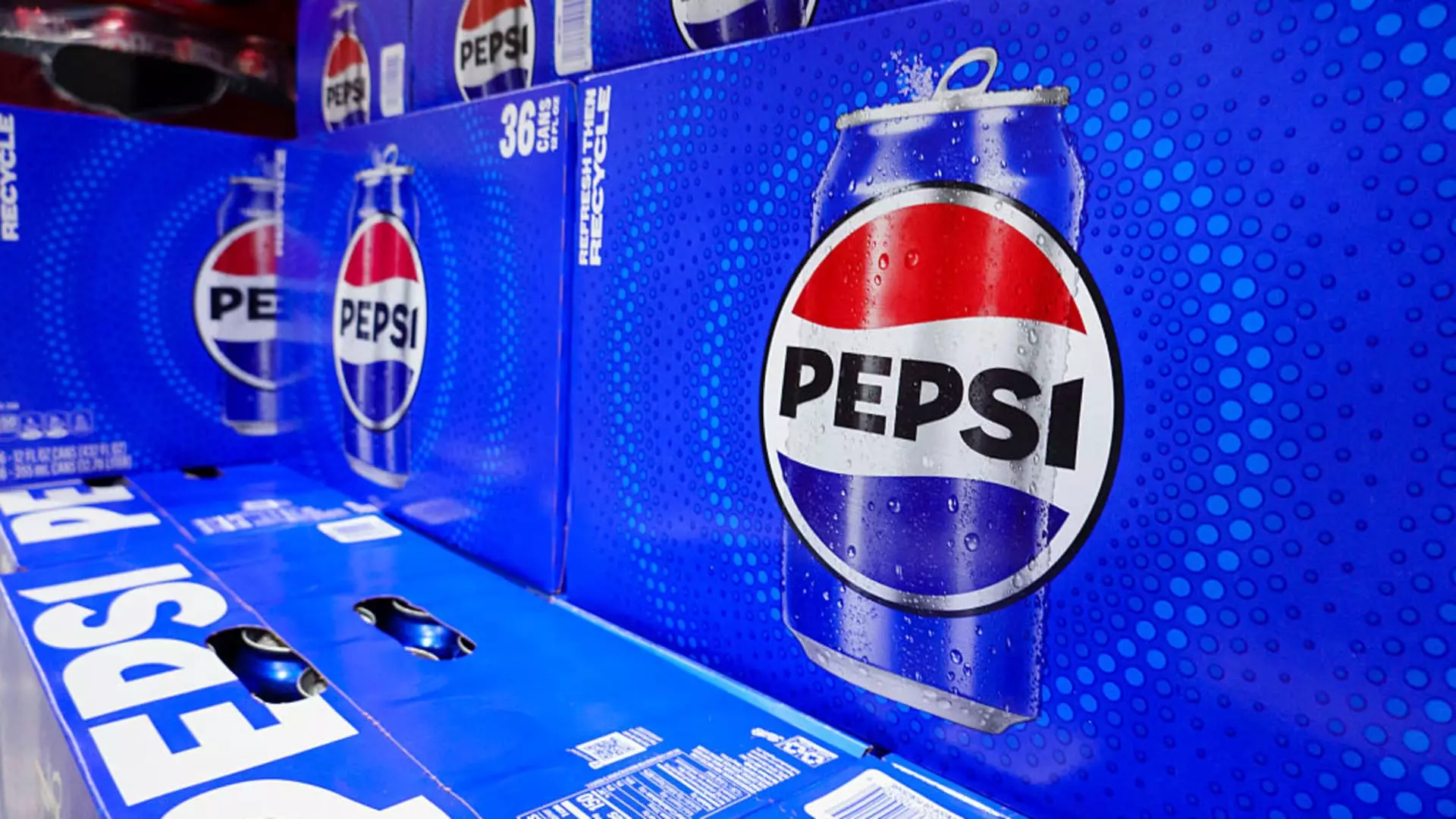In a time when economic instability and shifting consumer preferences are reshaping the landscape of global commerce, PepsiCo’s latest earnings report presents a paradoxical picture. While the company surpasses Wall Street expectations with higher-than-anticipated earnings per share and revenue, beneath these headline figures lies a narrative of fragility and challenge. The modest stock rally, a mere 2% in premarket trading, perhaps masks investor optimism that is largely fueled by strategic cost-cutting rather than genuine growth. The reality is that Pepsi’s core markets are weakening, revealing vulnerabilities that may threaten its long-term sustainability.
The company’s underlying numbers tell a story of declining volumes that cannot simply be dismissed as temporary dips. Actual net income has plummeted from over $3 billion last year to just over $1.26 billion this quarter — a stark indicator of shrinking profitability. Adjusted earnings per share rose slightly, but this improvement largely stems from cost reductions, including closing manufacturing plants and streamlining logistics. These are necessary but insufficient measures that signal the company’s retreat from growth initiatives in favor of short-term financial engineering.
Declining Demand and Shifting Consumer Dynamics
That Pepsi’s global volume decreased by 1.5% and North American food volume dipped 1% is a concerning sign. Such declines suggest that even the most iconic brands are losing their grip amid changing consumer habits. The beverage giant’s flat drink volume, coupled with a 2% decline in North American drinks, exposes a market segment that is no longer as resilient as it once was. While products like Pepsi Zero Sugar show double-digit growth, these represent exceptions rather than the rule — a reflection of consumers seeking healthier, more diverse options.
Pepsi’s strategic focus on consciously aligning with health trends by emphasizing protein offerings and multicultural products tackles the symptoms rather than the root causes of declining demand. These measures, although prudent, appear reactive rather than visionary. Amid inflation and economic uncertainty, consumers are tightening their belts, scrutinizing their food and beverage choices more than ever, compelling Pepsi to scramble for relevance in a crowded, rapidly changing marketplace.
Cost-Cutting and Efficiency: A Double-Edged Sword
While the company’s efforts to cut costs—closing plants and optimizing logistics—may bolster short-term margins, they also risk undermining long-term growth potential. Manufacturing closures could impair supply chain resilience, especially if demand picks up unexpectedly. The focus on marketing efficiency and avoiding duplication within divisions seems to reflect a desire to protect margins rather than invest in innovation that could rekindle growth.
This emphasis on efficiency becomes problematic when it conflicts with consumer engagement strategies. Simply reducing expenditures on advertising and in-store placement may lead to a further erosion of mindshare in highly competitive markets. If Pepsi is genuinely committed to ensuring its market relevance, then a balanced approach that includes meaningful innovation and consumer-focused branding is essential. Cost-cutting cannot be a substitute for building genuine consumer loyalty through product differentiation and innovation.
The Illusion of Stability in a Volatile Environment
By reiterating its full-year outlook of minimal growth, PepsiCo implies confidence in its resilience. But this outlook arguably underestimates the profound headwinds facing the industry: inflationary pressures, economic volatility, and a consumer base increasingly skeptical of traditional soda and snack offerings. The company’s cautious stance signals awareness of these threats, yet it also suggests a reluctance to truly confront them head-on.
In reality, Pepsi’s performance underscores the difficulty of maintaining consistent growth amid turbulent economic conditions. The company’s efforts to diversify into healthier, multicultural, and protein-rich products are steps in the right direction, but these measures are incremental. Without a bold vision that redefines what it means to connect with modern consumers, Pepsi risks stagnating amid a rapidly evolving landscape where agility and innovation are paramount.
The Center-Left Balance: Navigating the Future
From a political and social standpoint, Pepsi’s position reflects the nuanced demands of a center-leaning liberal perspective: a desire for responsible corporate behavior that balances profit with social engagement. Their push for healthier options and multicultural offerings aligns with societal shifts toward inclusivity and health consciousness. However, their reliance on short-term cost reductions and cautious forecasts reveals a hesitance to embrace transformative change necessary for future relevance.
The challenge lies in moving beyond superficial adjustments and investing genuinely in a future that champions sustainability, health, and cultural inclusivity. Pepsi must resist the temptation to focus solely on immediate financial engineering; instead, it should view these difficulties as catalysts to fundamentally redefine its identity and relationships with consumers. Only through such a balanced, socially conscious approach can Pepsi hope to not just survive but thrive in an uncertain and competitive global economy.


Leave a Reply